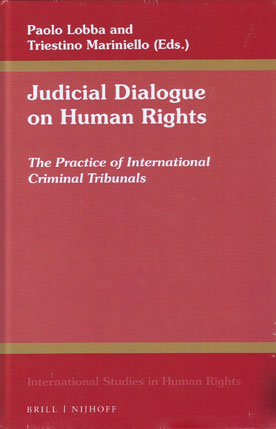
Judicial Dialogue on Human Rights offers a critical legal perspective on the manner in which international criminal tribunals select, (re-)interpret and apply the principles and standards formulated by the European Court of Human Rights.
A part of the book is devoted to test the assumption that the current practice of cross-referencing, though widespread, is incoherent in method and erratic in substance. Notable illustrations analysed in the book include the nullum crimen principle, prohibition of torture, hearsay evidence and victims’ rights.
Another section of the book seeks to devise a methodologically sound ‘grammar’ of judicial dialogue, focussing on how and when human rights concepts may be transferred into the context of international criminal justice.